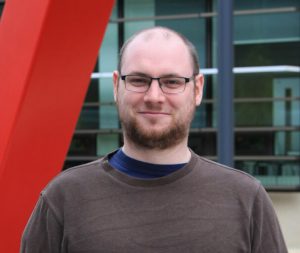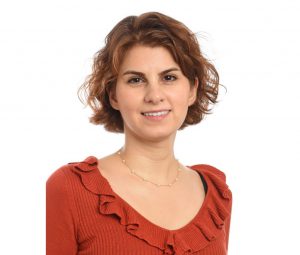The Centre's Early Career Fellowship Programme is an initiative funded by MRC designed to attract to the Centre exceptional candidates seeking to establish their own programme of research. The programme provides a unique opportunity for early-career scientists to develop the skills needed to meet future research challenges in the environment and health arena, thus seeding and strengthening the discipline both nationally and internationally.
Meet our MRC Early Career Research Fellows

Jessica Laine
Lastly, she is investigating urban determinants of health by characterising the urban exposome using a multilevel approach. This work will determine what level of exposure assessment can be used to identify disease risks, by assessing and comparing a nested population with air pollution measures at both a macro level from land-use regression models and from personal exposure monitoring. Beyond her efforts in causality to reduce the environmental disease burden, she is passionate about effective science communication and outreach, and promoting women in science."
Holly Lam
Holly Lam is an environmental epidemiologist by training. Her research interests focus on the effects of ambient exposures and climate change on human health and factors for formulating diseases prevention/ health improvement strategies against environmental exposures. She estimated the short-term relative risks of hospitalization caused by respiratory conditions, acute myocardial infraction among diabetics and mental disorders that were associated with meteorological factors using a time-series approach. She investigated the effects of high ambient temperature on allergic symptoms and identified the socio-demographic factors that affect the uptake of protective behaviour against extreme weather conditions using survey data.

She joined the National Heart and Lung Institute in 2019 and extended her research on the association between environmental exposures and allergies with the support of the centre’s fellowship. She quantified the seasonality of food anaphylaxis and investigated its association with pollen count and temperature. To explore the mechanisms of the associations observed, she will evaluate the seasonality of allergic responses and identify their potential associated factors. This work will help to formulate guidelines to reduce the risks of triggering food anaphylaxis, a life-threatening allergic condition, in the face of the increasing prevalence and climate change.

Timothy C D Lucas
Tim's research is centred on the development of geostatistical methods. His fellowship focusses on combining human movement, air pollution and disease outcome data to realistically characterise people's exposure to air pollution. This work will use a combination of Bayesian geostatistical models and machine learning methods. For his PhD Tim used multi-pathogen models to study the factors that affect which bat species are most likely to host zoonotic viruses. He then developed geostatistical methods for malaria mapping. This work resulted in the creation of global maps of malaria incidence through time and fed into the Global Burden of Disease study.
Niloofar Shoari
Niloofar’s research is at the intersection of environmental sciences and public health, with a particular focus on the application of Bayesian methods in this area. Her current project aims to understand what makes a neighbourhood healthy, and how growing up in different neighbourhoods contributes to the improvement of health and educational outcomes in school-age children. She completed her PhD in Environmental Engineering at École de Technologie Supérieure (University of Quebec, Canada), where she worked on quantitative analysis of soil contamination data and developed guidelines for engineers and policy-makers as to how to deal with the below detection limit concentrations. She was a visiting research scholar in the Department of Statistics at the University of Waterloo and Texas A&M University. She completed her MSc and BSc in Environmental Engineering at La Sapienza University of Rome (Italy).

